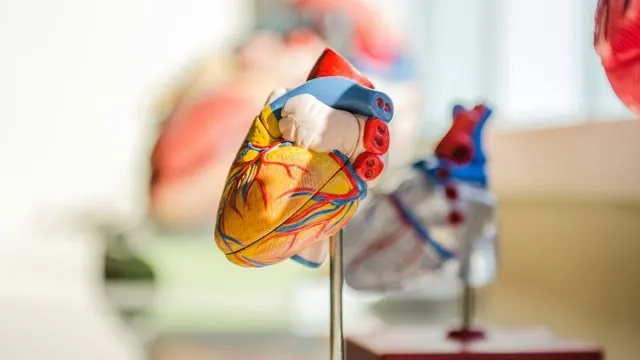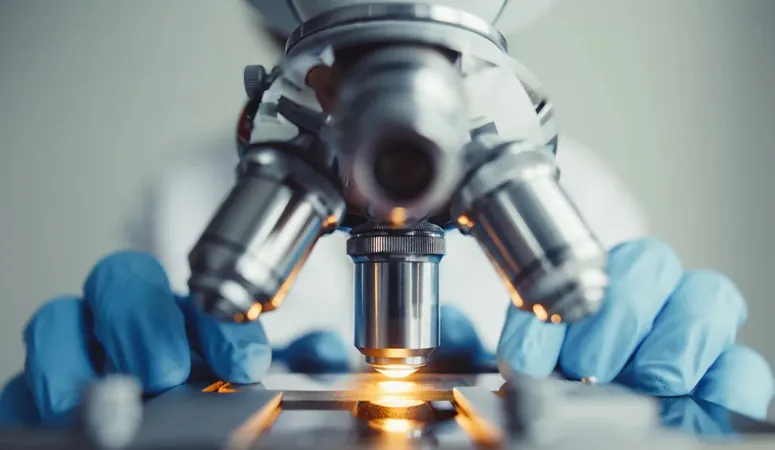
Revolutionary Heart Drug Found to Stimulate Bone Growth: A Potential Game-Changer for Growth Disorders!
2025-06-17
Author: Arjun
PDE3 Inhibitors: From Heart Health to Bone Growth?
In a groundbreaking discovery, researchers have revealed that phosphodiesterase 3 (PDE3) inhibitors—drugs already approved for treating heart diseases and asthma—may possess the potential to revolutionize treatment for growth disorders. Recent studies indicate these medications could activate crucial signaling pathways in bone cells, promoting bone growth and extracellular matrix production.
Understanding Bone Growth: The Role of CNP and Calcium Ions
Bone growth involves specialized cells called chondrocytes, which proliferate at the ends of bones and are essential for synthesizing the extracellular matrix (ECM) in growth plates. A peptide hormone known as C-type natriuretic peptide (CNP) binds to chondrocyte receptors, initiating a signaling cascade that opens calcium channels. This crucial process allows calcium ions to flood into chondrocytes, further stimulating ECM synthesis and bone development.
PDE3: The Enzyme with a Dual Purpose
At the center of this signaling pathway is the enzyme phosphodiesterase 3 (PDE3), which converts cGMP—activated by CNP—into GMP. Inhibiting PDE3 could lead to higher cGMP levels, amplifying cellular activities that foster bone growth.
Groundbreaking Research Unveils New Possibilities
Led by Associate Professor Atsuhiko Ichimura from Ritsumeikan University and a team from Kyoto University, this research, published in the *British Journal of Pharmacology*, explored the interaction between PDE3 inhibitors and bone growth using both in vivo and ex vivo studies. Dr. Ichimura explained the significance, stating, "We aimed to enhance CNP signaling through PDE inhibitors, building on our previous findings that CNP is critical for Ca2+ influx in chondrocytes."
Cilostazol: The Star of the Show!
In laboratory cultures of metatarsal bones, cilostazol, a prominent PDE3 inhibitor, was added. The results were astonishing: researchers recorded a substantial increase in bone outgrowth compared to control samples, highlighting the drug's potential. Graduate student Takaaki Kawabe noted a notable expansion of specific chondrocyte zones in cilostazol-treated bones.
In Vivo Effects: Significant Growth Observed in Young Mice
Delving deeper, the researchers treated three-week-old mice with cilostazol and tracked their growth over four weeks. The results were telling; the treated mice not only gained weight but experienced significant increases in body length—demonstrating the drug's remarkable effect on growth.
Exciting Implications for Growth Disorders
These pivotal findings suggest PDE3 inhibitors could be repurposed to address conditions linked to short stature, such as achondroplasia and idiopathic short stature. Dr. Ichimura and Professor Takeshima emphasized the potential for these drugs to be combined with existing treatments to enhance outcomes for patients struggling with skeletal growth issues.
Caution: Not for Self-Administration!
However, it's important to note that this research is based on preclinical experiments, and self-administration of PDE3 inhibitors is strictly prohibited. Misuse can lead to severe side effects, including hypotension and impaired blood clotting. Further clinical trials are essential before any clinical applications can be considered.
The Future Looks Promising!
As this revolutionary study unfolds, PDE3 inhibitors could pave the way for innovative therapies, merging heart health with bone growth treatment, offering hope to those affected by growth disorders.




 Brasil (PT)
Brasil (PT)
 Canada (EN)
Canada (EN)
 Chile (ES)
Chile (ES)
 Česko (CS)
Česko (CS)
 대한민국 (KO)
대한민국 (KO)
 España (ES)
España (ES)
 France (FR)
France (FR)
 Hong Kong (EN)
Hong Kong (EN)
 Italia (IT)
Italia (IT)
 日本 (JA)
日本 (JA)
 Magyarország (HU)
Magyarország (HU)
 Norge (NO)
Norge (NO)
 Polska (PL)
Polska (PL)
 Schweiz (DE)
Schweiz (DE)
 Singapore (EN)
Singapore (EN)
 Sverige (SV)
Sverige (SV)
 Suomi (FI)
Suomi (FI)
 Türkiye (TR)
Türkiye (TR)
 الإمارات العربية المتحدة (AR)
الإمارات العربية المتحدة (AR)